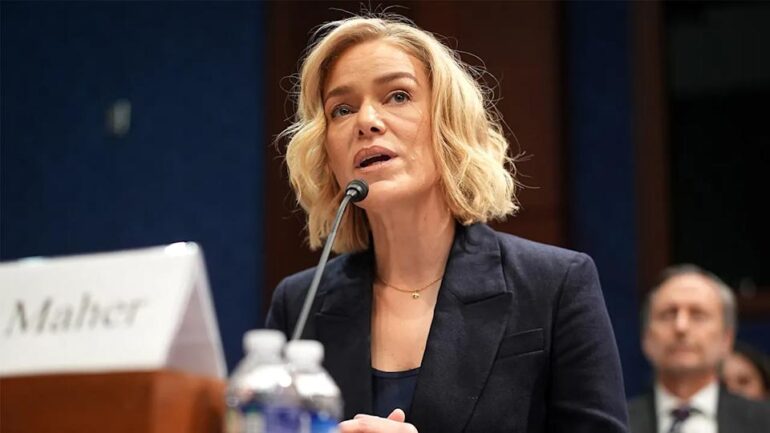In a stunning turn of events, NPR’s CEO Katherine Maher admitted on March 26, 2025, that the publicly funded news outlet made a serious mistake by refusing to cover the Hunter Biden laptop story before the 2020 presidential election. Testifying before the House Subcommittee on Delivering on Government Efficiency in Washington, D.C., Maher faced tough questions about NPR’s left-leaning bias and its handling of major stories. Her confession has reignited debates about media trustworthiness, political influence, and the role of taxpayer-funded outlets like NPR.
The Hunter Biden laptop story first broke in October 2020 when the New York Post published explosive emails from a laptop allegedly belonging to President Joe Biden’s son. The emails suggested Hunter used his father’s position as vice president to attract foreign business deals, raking in millions from countries like Ukraine and China. At the time, NPR dismissed the story as a distraction, with then-managing editor Terence Samuels saying, “We don’t want to waste our time on stories that are not really stories.” Four years later, Maher acknowledged this was a misstep, saying, “NPR acknowledges that we were mistaken in failing to cover the Hunter Biden laptop story more aggressively and sooner.”
This admission didn’t come out of nowhere. Republican lawmakers, including Representative Michael Cloud of Texas, pressed Maher during the hearing, pointing to NPR’s pattern of avoiding stories that didn’t fit its narrative. They also brought up a 2024 editorial by former NPR editor Uri Berliner, who slammed the outlet for losing America’s trust by becoming too partisan. Berliner had called out NPR’s refusal to cover the laptop story, saying it was ignored “because it could help Trump.” His words hit hard, exposing how NPR’s choices might’ve shaped what millions of listeners heard—or didn’t hear—before a critical election.
Maher’s testimony didn’t stop at the laptop. When asked about NPR’s dismissal of the Covid-19 lab-leak theory—once labeled a conspiracy but now backed by CIA evidence—she admitted the outlet should’ve covered it sooner too. “We acknowledged that the new CIA evidence is worthy of coverage and have covered it,” she said. This flip-flop has only fueled critics who say NPR picks and chooses facts to fit a progressive agenda.
The hearing, led by Representative Marjorie Taylor Greene, wasn’t just about one story. Republicans argued that NPR and its counterpart PBS have morphed into “radical, left-wing echo chambers” for wealthy, urban liberals, leaving rural America in the dust. They pointed to biases on issues like gender ideology and diversity initiatives, questioning why taxpayers should fund outlets that seem to serve only one side. Though government funding is just 1% of NPR’s budget, conservatives are pushing to cut it entirely, claiming the bias is too deep to fix.
The Hunter Biden laptop saga itself is a wild ride. After the Post’s report, Twitter and Facebook censored the story, spurred by FBI pressure and a letter from 51 ex-intelligence officials calling it Russian disinformation—a claim later debunked. Meanwhile, House Republicans found Hunter and his partners pocketed $27 million from foreign sources, leading to an impeachment inquiry into Joe Biden. Special counsel David Weiss later convicted Hunter on gun and tax charges tied to his lavish lifestyle, with the FBI confirming the laptop’s authenticity using its serial number and Hunter’s iCloud data. In December 2024, Joe Biden issued a sweeping pardon for his son, covering a decade of potential crimes, sparking outrage over favoritism.
Maher, who took over NPR in January 2024, has her own history of left-wing activism, which lawmakers didn’t let slide. Her admission might be a step toward accountability, but it’s also a glaring spotlight on NPR’s credibility crisis. For years, the outlet brushed off the laptop story as tabloid fodder, only to backtrack when the evidence became undeniable. Critics ask: What else has NPR missed or buried? And for a nation split on trust in media, this moment might just tip the scales further.
So, what’s the takeaway? NPR’s mea culpa shows even big-name outlets can fumble the truth—and own up to it too late. Whether it’s enough to rebuild faith in a polarized world, though, is anyone’s guess.
